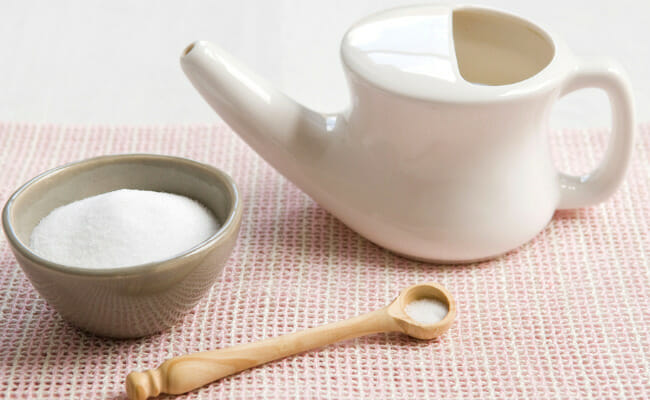The 7 Best Home Remedies for Seasonal Allergies
Most people enjoy the changing seasons, but some dread their allergies. Certain people keep their eyes open for falling pollen, while others must confirm that their meals have no allergy triggers. That is why more of them search for the best home remedies.
Unless you have allergy medications, do-it-yourself solutions can help you beat symptoms without spending too much money. More importantly, you could avoid the potential side effects of over-the-counter meds. We will discuss some of the best ways to beat allergic reactions.
We will go through solutions that may seem mundane, yet many people rely on them to ease allergy symptoms. After that, we will elaborate on various ways to make you and your home allergy-proof. If your symptoms persist, please consult a doctor.
Here are some of the top-rated DIY remedies for seasonal allergies:
- Mix a saline solution at home.
- Eat foods that reduce allergies.
- Eat and drink more probiotics.
- Use a warm and cold compress.
- Drink a lot of water.
- Reduce your stress.
- Shower once you get home.
1. Mix a saline solution at home.

Photo Credit: www.today.com
Hay fever or allergic rhinitis or hay fever is one of the most common reactions during the pollen seasons. It brings various symptoms such as a runny nose, nasal congestion, and itchy eyes.
Fortunately, allergy sufferers do not have to head to their medicine cabinets for a solution immediately. Instead, they could create a nasal solution at home.
It is also known as a saline solution, a mixture of baking soda, salt, and water. You can find various online instructions, but it is best to follow the ones from the American Academy of Allergy, Asthma, & Immunology (AAAAI):
- Mix three teaspoons of salt with a teaspoon of baking soda. However, ensure your salt does not contain iodide, preservatives, or anti-caking agents because they could worsen nasal irrigation.
- Boil a cup of water or get distilled water of the same amount. Do not use lukewarm tap water because it may contain microbes that could exacerbate allergic reactions.
- Add the baking soda and salt mixture to the water.
- Use it as a saline rinse.
You could purchase devices for saline nasal irrigation on the internet or at your local pharmacy. The neti pot is a well-known option, so you might want to search for these first.
If you take medications, check their potential reactions with a nasal solution. Be careful if you use nasal steroids, as you might rinse it away with your salty remedy.
2. Eat foods that reduce allergies.
Your pantry can contain all the remedies you need for seasonal allergies. They are fruits and vegetables that can boost your immune system:
- Apples – They do not keep the doctor away, but they might help you cope with seasonal allergies. Apples contain vitamin C, quercetin, and flavonoids. Specifically, quercetin may promote histamine release, helping apples become effective natural remedies.
- Raspberries and blueberries – These fruits contain flavonoids and vitamin C that may reduce children’s histamine response to allergies. Moreover, they come in bite-sized pieces, so they pose little to no choking risk.
- Onions – You can also find quercetin in this bulbous veggie. Try to incorporate this with your favorite dishes. For example, you could cook more sauteed meals like veggie stir fry.
- Spicy foods – Peppers, chilis, and ginger may relieve nasal congestion by thinning mucus. Also, chilis contain capsaicin that could desensitize nerve fibers in your nose.
You may find online articles recommending honey as a natural remedy for allergies. They typically justify it by saying it helps your body adjust to pollen allergy season.
The usual reasoning is that bees create honey from pollen. Since the latter causes seasonal allergies, the body may eventually stop having severe allergic reactions.
However, doctors say that the pollen that causes seasonal allergies only comes from wind-pollinated plants. Honey does not have a significant amount of this allergen.
You should also avoid giving it to children under a year old. Otherwise, your baby runs the risk of contracting infant botulism, which is a severe gastrointestinal illness.
3. Eat and drink more probiotics.

Photo Credit: www.nutraingredients-asia.com
Did you know that your gut needs bacteria? Believe it or not, your stomach needs various microbes to digest food and boost your immune system.
Scientific research says that 80% of your immune system sits in the gut. Probiotics or “good bacteria” such as Bifidobacterium and Lactobacillus improve its performance.
They facilitate the regulation of immune cells such as macrophages and T-lymphocytes. As a result, they might fight off seasonal allergy symptoms.
You could drink probiotic drinks like Yakult daily or eat certain foods. Here are some examples:
- Yogurt can boost your immune system and may even curb lactose intolerance. You may purchase brands that contain specific probiotics, but any yogurt with “active and live cultures” may also help. However, read the labels since some brands add too much sugar into their creamy treats.
- Sauerkraut is fermented cabbage that comes in thin strips. Choose the unpasteurized variants as pasteurization can eliminate probiotics.
- Kimchi is like a “Korean Sauerkraut” with a spicy kick. Like this German food, it contains vitamins that enhance the immune system. Moreover, Kimchi has spices that can help loosen your nasal passages during seasonal allergies.
- Miso Soup is a breakfast soup typical in Japan. It contains fermented soybean paste or miso that helps your immunity. Also, it is low on calories and high in antioxidants and vitamins.
- Natto is another fermented soybean food from the Land of the Rising Sun. It contains the good bacteria Bacillus subtilis. Also, it is rich in vitamin K2 and protein that strengthens bones and improves heart health.
- Cheese can contain probiotics, but you must check for brands with live and active cultures. Choose specific types such as Gouda, cheddar, mozzarella, and cottage cheese because their good bacteria can stay in your gut. Even better, use them to prepare a charcuterie board!
You may take probiotic supplements if you do not want to eat or drink new stuff. Read product labels to ensure that your foods and supplements have no harmful ingredients.
4. Use a warm and cold compress.

Photo Credit: www.healthline.com
You may have used a warm compress for aching muscles or a cold compress for fevers. Have you ever tried them as remedies for seasonal allergies?
Warm and cold compresses may alleviate common allergy symptoms, such as allergic rhinitis. It causes itchy eyes and clogged noses, and both of them can help.
To loosen nasal passages, you may place a warm compress over your nose and eyes. Expect to have a runny nose as the mucus escapes your sinuses.
Meanwhile, a cold compress can be a quick and easy way to ease eye allergies. Low temperature limits blood flow to the eyes, which may temporarily relieve inflammation.
Use a quality compress bag to prevent the water from spilling or scalding your skin. Fortunately, you could easily purchase one from Amazon and other online stores.
Alternatively, you could quickly try eye drops to relieve eye irritation from hay fever. Choose doctor-recommended options such as Optive and Systane Ultra. Chill them in your refrigerator before use for better results.
5. Drink a lot of water.
Staying hydrated is a must for anyone, especially those who suffer from allergies. Believe it or not, it is one of the best natural remedies for seasonal allergies.
Studies suggest that dehydration can cause a rise in histamine levels, and nasal symptoms include an excess of this substance. As a result, a lack of water can exacerbate nasal allergies.
Of course, you must ensure that you are drinking sanitary water. Boiling tap water is not enough to get rid of impurities. Fortunately, there are various ways to distill water at home.
It is best to always bring pure water with you outdoors to stay hydrated. What’s more, you save money and the environment since you will not need to buy bottled water.
You should get the best water bottles to keep your water hot or cold. You can maintain water quality, especially while following a diet regimen.
6. Reduce your stress.
Nowadays, people deal with much stress from work, school, and other activities. It has various adverse health effects, such as worsening your bodily response to allergies.
Allergies come from an exaggerated response from your immune system. Studies suggest that stress can exacerbate this overreaction so that you may have a more challenging time with allergies.
Believe it or not, stress can worsen allergies at a psychological level. It raises our emotional reactions to symptoms, causing us to struggle further with allergy triggers.
Fortunately, there are multiple ways to relieve stress. Try the following examples as natural remedies for seasonal allergies:
- Identify the things that cause your stress, then try to reduce or remove them. For example, you may rethink your priorities if you constantly overextend yourself.
- Make sure to get sufficient hours of sleep every night. The recommended average is eight hours per night, but you may need less as you grow older. Aside from relieving stress, it can aid in restoring your body’s homeostatic balance and healing your allergic body.
- Set some time for relaxation. Use your weekends to unwind with various hobbies or hang out with friends and family.
- Exercise every day to reduce stress hormones. Physical activity can also ease a runny nose so that you can breathe easier during an allergic reaction.
- Incorporate meditation into your daily routine. Twenty minutes of intense concentration one or two times every day can relax you. You could download and install a meditation app to help you start.
- Follow your doctor’s advice. Always take the recommended doses of your allergy shots and medications. You may want to ask if taking dietary supplements can help.
7. Shower once you get home.
You will have to go outside despite reports of increased outdoor pollen counts. Once you do so, you will have some granules sticking to your clothes and body.
Showering is one of the natural remedies for allergies since it can wash away pollen from your body. As a result, you avoid having an allergic response at home.
Focus on rinsing your hair since the strands can easily carry pollen grains. Aside from taking a bath, you should also wash your clothes as soon as you get home.
Otherwise, they may eventually spread pollen inside your home. If you cannot wash them immediately, keep them inside a sealed laundry hamper.
Other ways to beat seasonal allergies
Home remedies are good, but early prevention is better. You can prevent yourself from contracting allergies by wearing a mask outside.
Wearing face masks was common in various countries, even before the COVID pandemic. Some people wear N95s to protect themselves against high pollen counts.
You may also keep your home allergy-free with the help of air conditioning units and dehumidifiers. Tree pollen and other allergens cannot survive in arid conditions.
Meanwhile, quality air conditioning units have filters that keep the outdoor pollen count away from your home. Still, the best way to avoid allergies is by avoiding your triggers.
If shrimp causes you to have allergic rhinitis, make sure your meals do not contain any parts of it. Also, you could stay indoors during days with high pollen counts if you do not need to go outside.
If you suffer from nasal allergies, stay at home during a thunderstorm. This type of weather involves strong gusts of wind that spreads a high amount of pollen over a wide area.
Conclusion
Your home has many natural remedies against allergy symptoms. Drinking plenty of water and eating specific foods may help relieve allergies.
Note that not all alternative treatments are safe or effective. For example, there are no solid pieces of evidence that suggest essential oils can improve symptoms of allergies.
More importantly, seek professional medical advice for your seasonal allergies, especially if you need allergy medications. Note that this article does not intend to share medical advice.
What can help with allergies at home?
You could eat and drink certain products that contain probiotics. Also, you could create a home nasal rinse as a natural allergy treatment.
Is honey good for allergies?
At the time of writing, no solid evidence supports honey as a viable allergy treatment. You may want to try safer methods like cold and warm compresses.
Is allergy due to low immunity?
A weak immune system is one of the typical causes of seasonal allergies. However, people can have other factors that cause their usual symptoms.
What are the ten most common allergies?
Here are the ten most common allergens in the United States:
- Foods
- Animals
- Pollen
- Mold
- Dust mites
- Certain medicines
- Latex
- Insect stings
- Cockroaches
- Household chemicals and perfumes
Do allergies get worse with age?
How your body reacts to allergens can vary as you grow older. Some folks may have allergic reactions as children, experience several years of relief, then see the symptoms return in their 30s.





